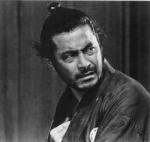Quote
V
In angels, we find our measure.
Prophets would speak of shadowed paths, of ways dark with doubt, their ends an enigma reborn and redefined in every moment. They were fools. There was only one road, stretching from the first, yawning gasp of Time on to its last, silent sigh; silent because, when it came, there would be none left to bear witness.
Wandering was a conceit, a delusion as pervasive among Lords as it was among their mortal progeny. Playing out their pitiful dramas, they had sought defiance, to rise and hold against the crushing tide of inevitability, all the while unaware that the marches of their profligate wars had been nothing more than a resonance of their own unerring walk to doom.
And thus, they had prosecuted suffering for aeons without end; had invented warfare and love, faith and death, only to bind them all together in the greatest possible betrayal. The image of them standing tall around the shattered altar of their deepest hope, knives in hand, throats opened wide, lifeblood spilling out in the illusion of promise, spilling onto the cracked, indifferent stone – was a scene dangerously enamoring to Asinori. He could well understand the fey triumph they had sought: to make a crown of their suicide whose gleam would never fade, each extinguished life a monument, a litany in stone to dam the flow of certainty.
Of course, their end hadn't been quite so poetic as that. Nonetheless, the Sorrowfall had struck, laying the Highest Heaven to waste, and in utter vanity, the Lords had given up, turned one and all to sacrificial glory and abandoned all that they had served.
Forget Lordship and Sovereignty; forget the luster of stars and the bleakness of the voids between them. Age was the one and only god, and its doctrine was futility, its priests the life-lorn: the sick, the impoverished, the decrepit, all those who saw the world bereft of its glamorous grandeur.
Let them be blessed.
In the end, it was only his disgust at the world they'd left behind that kept Asinori from indulging in a similar end. Though he was the last of their line, the aloof apathy of Lordship was spared him. He was of this realm, witness to its multitudes and all their fleeting struggles – struggles no more or less meaningful than any the Lords had undertook. Witness, and participant in every small defeat.
That was where they had failed, he believed. Facing utter ruin, they had thought only of themselves, of their fall from might, while in truth, they had been born and ever remained as powerless as the children they would forsake. Sorrow fell in splendor's wake, and would continue to fall, piling atop the heaped carcasses of too many gods to name.
What did it take, to embrace such an end? Despair would have seen them live out their final days, watching the waters rise in hopeless fixation, refusing to give voice to their rage. No, it was hope, he believed, that had been their undoing. The glimmer of immortality through heedless valor had been the lure, drawing them with such fervor that it seemed a plague, infecting first the most warlike among them, then spreading to consume them all.
All but one. How many thousands of years had passed? The gates to heaven were barred, and with each passing age the kingdoms that remained descended further into decay, as they must. A golden sky was no proof against the ravaging that came, and only showed its scars the worse. How dark it must look, when all that it had lost was laid bare, with none left to dress up the desolation.
It served nothing to ponder what the Lords could have wrought in such time, had they lived. The end, by its very nature, would be little different, regardless. The longer he lived, and watched, and came to accept the course of things, the clearer it became to Asinori that the enemy was not inevitability, but rather ineffability. Ignorance was passed down from god to servant, from father to son to son like an inheritance. The wretched misapprehension that there existed such a thing as value, as merit.
If there was anything he had gleaned from these creatures, these mortals as they lived out in years what it took his kind endless epochs to endure, it was that true futility came from empowering that eventual end, in giving oneself to it. Life would come to death, every fruit to dust. To fight it, in ones mind or upon the field as had the Lords, was the ultimate deception. The eyes of the abyss were blind, and could feel no sting. Miracles were not granted, but made.
And that left doing all the could, giving his life to every moment, until the tide came crashing down.
In angels, we find our measure.
Prophets would speak of shadowed paths, of ways dark with doubt, their ends an enigma reborn and redefined in every moment. They were fools. There was only one road, stretching from the first, yawning gasp of Time on to its last, silent sigh; silent because, when it came, there would be none left to bear witness.
Wandering was a conceit, a delusion as pervasive among Lords as it was among their mortal progeny. Playing out their pitiful dramas, they had sought defiance, to rise and hold against the crushing tide of inevitability, all the while unaware that the marches of their profligate wars had been nothing more than a resonance of their own unerring walk to doom.
And thus, they had prosecuted suffering for aeons without end; had invented warfare and love, faith and death, only to bind them all together in the greatest possible betrayal. The image of them standing tall around the shattered altar of their deepest hope, knives in hand, throats opened wide, lifeblood spilling out in the illusion of promise, spilling onto the cracked, indifferent stone – was a scene dangerously enamoring to Asinori. He could well understand the fey triumph they had sought: to make a crown of their suicide whose gleam would never fade, each extinguished life a monument, a litany in stone to dam the flow of certainty.
Of course, their end hadn't been quite so poetic as that. Nonetheless, the Sorrowfall had struck, laying the Highest Heaven to waste, and in utter vanity, the Lords had given up, turned one and all to sacrificial glory and abandoned all that they had served.
Forget Lordship and Sovereignty; forget the luster of stars and the bleakness of the voids between them. Age was the one and only god, and its doctrine was futility, its priests the life-lorn: the sick, the impoverished, the decrepit, all those who saw the world bereft of its glamorous grandeur.
Let them be blessed.
In the end, it was only his disgust at the world they'd left behind that kept Asinori from indulging in a similar end. Though he was the last of their line, the aloof apathy of Lordship was spared him. He was of this realm, witness to its multitudes and all their fleeting struggles – struggles no more or less meaningful than any the Lords had undertook. Witness, and participant in every small defeat.
That was where they had failed, he believed. Facing utter ruin, they had thought only of themselves, of their fall from might, while in truth, they had been born and ever remained as powerless as the children they would forsake. Sorrow fell in splendor's wake, and would continue to fall, piling atop the heaped carcasses of too many gods to name.
What did it take, to embrace such an end? Despair would have seen them live out their final days, watching the waters rise in hopeless fixation, refusing to give voice to their rage. No, it was hope, he believed, that had been their undoing. The glimmer of immortality through heedless valor had been the lure, drawing them with such fervor that it seemed a plague, infecting first the most warlike among them, then spreading to consume them all.
All but one. How many thousands of years had passed? The gates to heaven were barred, and with each passing age the kingdoms that remained descended further into decay, as they must. A golden sky was no proof against the ravaging that came, and only showed its scars the worse. How dark it must look, when all that it had lost was laid bare, with none left to dress up the desolation.
It served nothing to ponder what the Lords could have wrought in such time, had they lived. The end, by its very nature, would be little different, regardless. The longer he lived, and watched, and came to accept the course of things, the clearer it became to Asinori that the enemy was not inevitability, but rather ineffability. Ignorance was passed down from god to servant, from father to son to son like an inheritance. The wretched misapprehension that there existed such a thing as value, as merit.
If there was anything he had gleaned from these creatures, these mortals as they lived out in years what it took his kind endless epochs to endure, it was that true futility came from empowering that eventual end, in giving oneself to it. Life would come to death, every fruit to dust. To fight it, in ones mind or upon the field as had the Lords, was the ultimate deception. The eyes of the abyss were blind, and could feel no sting. Miracles were not granted, but made.
And that left doing all the could, giving his life to every moment, until the tide came crashing down.

 Help
Help












